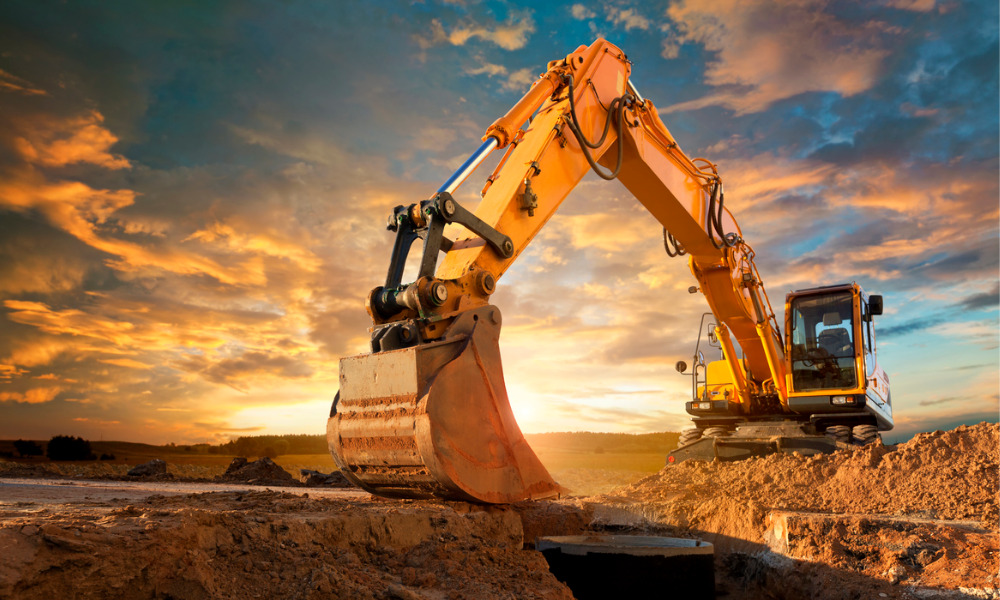Locate the Best Rental Company Near Me for Equipment
Locate the Best Rental Company Near Me for Equipment
Blog Article
Renting Vs. Acquiring Construction Equipment: Making the Right Selection for Your Task
When getting started on a construction task, one of the essential decisions that forecast stakeholders and supervisors encounter is whether to acquire or rent construction equipment. The decision hinges on numerous elements such as expense considerations, project duration, equipment maintenance, danger, scalability, and versatility monitoring.
Price Factors To Consider
When evaluating the monetary element of leasing versus purchasing building devices, the long-term expenses and upfront expenses have to be meticulously taken into consideration. Leasing tools frequently needs reduced initial settlements contrasted to buying, making it an eye-catching choice for temporary tasks or specialists with budget plan constraints. Leasing removes the need for big funding expenses and lowers the monetary threat associated with equipment possession, such as upkeep and devaluation costs. However, in the future, continually renting out devices can build up higher prices than acquiring, especially for prolonged jobs.
On the other hand, buying construction devices includes higher upfront prices but can cause long-lasting cost savings, especially for frequent individuals or lasting jobs. Owning devices offers flexibility, benefit, and the possibility for resale value once the task is finished. Additionally, possessing devices enables personalization and familiarity with specific machinery, potentially boosting effectiveness and efficiency on-site. Ultimately, the choice in between leasing and buying building and construction tools rests on the project's duration, regularity of use, budget plan considerations, and long-term financial goals.
Job Period

On the other hand, for long-lasting jobs or recurring construction work, purchasing tools could be the extra economical option. Buying equipment can lead to cost savings in the long run, specifically if the devices will be frequently used. In addition, owning devices supplies a sense of control over its availability and permits modification to fit specific project needs.

Devices Maintenance
Provided the crucial duty project period plays in figuring out one of the most affordable approach between acquiring and leasing building equipment, the focus currently shifts towards analyzing the vital aspect of devices maintenance. Proper upkeep is vital for guaranteeing the optimal efficiency and durability of construction tools. Renting tools typically comes with the benefit of having well-kept machinery supplied by the rental firm. This can alleviate the burden of maintenance jobs from the task owner or specialist, conserving effort and time. On the various other hand, possessing devices requires an aggressive strategy to upkeep to avoid break downs, guarantee safety, and prolong the devices's life expectancy. Routine assessments, servicing, and prompt repair work are needed to maintain owned and operated devices in leading functioning condition. Consider maintenance costs when choosing in between acquiring and renting, as ignoring maintenance can result in expensive repair services, downtime, and project delays. Inevitably, a properly maintained building and construction equipment fleet, whether rented out or had, is essential for the effective and reliable completion of building and construction tasks.
Adaptability and Scalability
In the realm of construction tools monitoring, the element of versatility and scalability holds significant significance for project effectiveness and resource usage. Deciding to rent building and construction tools offers a high degree of flexibility as it enables the fast change of tools kinds and quantities based upon the developing needs of a job. Leasing makes it possible for contractors to access a vast array of customized equipment that may be required for specific jobs i thought about this without the lasting dedication of possession. This flexibility is particularly advantageous for tasks with differing requirements or unpredictable durations (scissor lift rental).
Additionally, scalability, one more crucial aspect, is inherently linked to adaptability. Renting out building equipment provides the advantage of conveniently scaling operations up or down as task needs fluctuate. Specialists can promptly add or exchange devices to match the task's transforming demands without the restrictions of possessing possessions that might come to be underutilized or out-of-date. This capability to scale resources effectively can cause price financial savings and enhanced task timelines, making leasing a beneficial choice for projects calling for flexibility and receptive resource allowance.
Risk Management
Reliable danger administration in building and construction tools operations is paramount to making sure task success and mitigating possible economic losses. Construction projects inherently entail various risks, such as devices breakdowns, accidents, and job delays, which can significantly affect the job timeline and budget plan. By meticulously taking into consideration the threats associated with owning or leasing building equipment, project supervisors can make educated decisions to decrease these potential hazards.
Renting building devices can offer a level of danger mitigation by moving the obligation of repair and maintenance to the rental business. This can reduce the monetary concern on the job owner in case of unforeseen tools failings (heavy equipment rental). Additionally, leasing gives the versatility to access customized tools for certain job phases, decreasing the risk of having underutilized machinery
On the other hand, owning building equipment supplies a feeling of control over its use and maintenance. Nonetheless, this also indicates bearing the complete obligation for fixings, upkeep expenses, and depreciation, boosting the financial dangers connected with devices ownership. Careful threat analysis and consideration of elements such as job period, tools usage, and upkeep requirements are essential in determining one of the most hop over to these guys suitable option for reliable threat monitoring in construction tasks.
Final Thought
In conclusion, when determining in between acquiring and leasing building equipment, it is important to think about cost, job period, devices upkeep, versatility, scalability, and risk management. Each aspect plays a crucial duty in establishing the most suitable alternative for the job at hand. By thoroughly examining these aspects, task managers can make an enlightened decision that aligns with their spending plan, timeline, and overall task goals.

Report this page